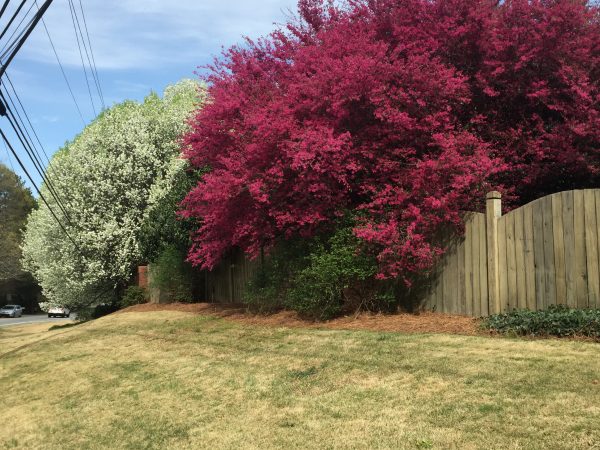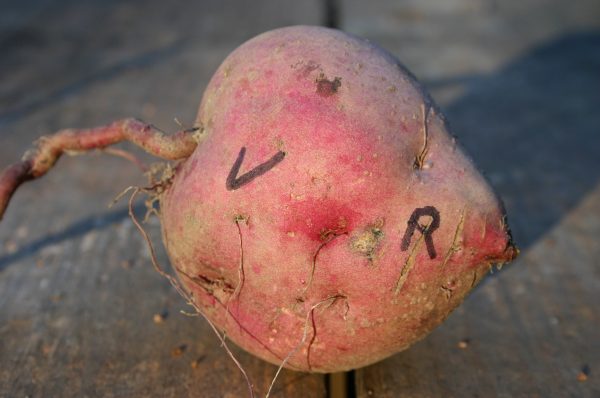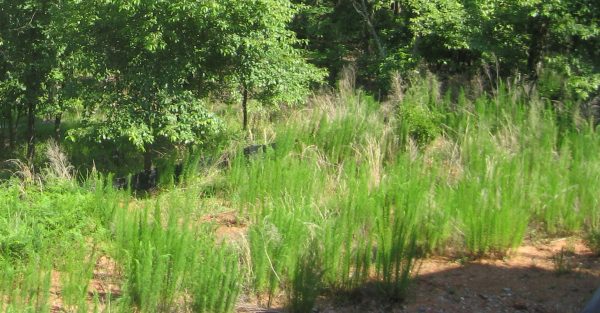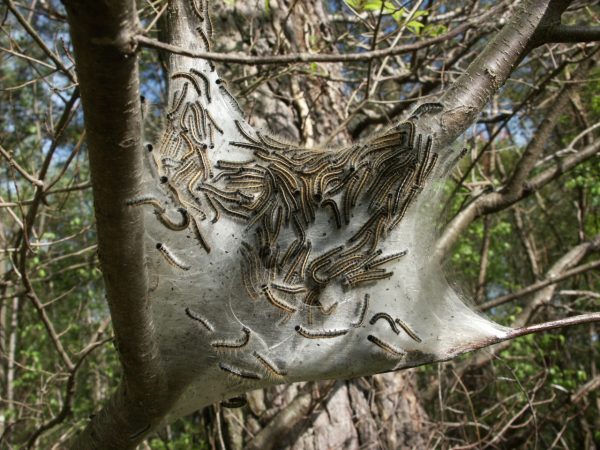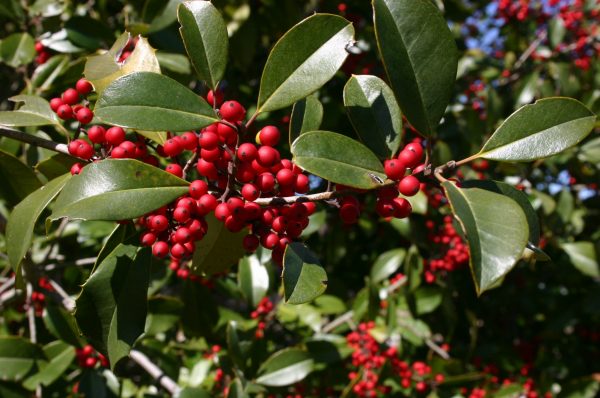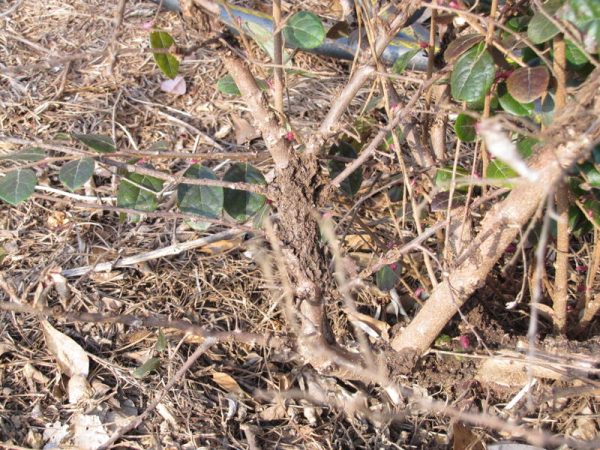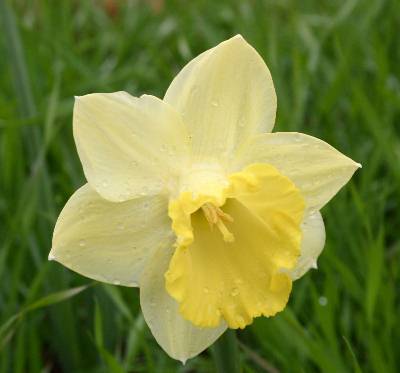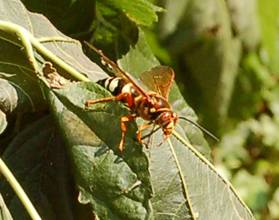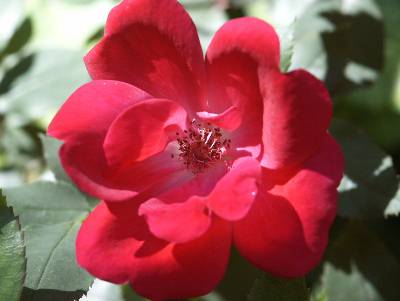Brood X cicadas in Georgia
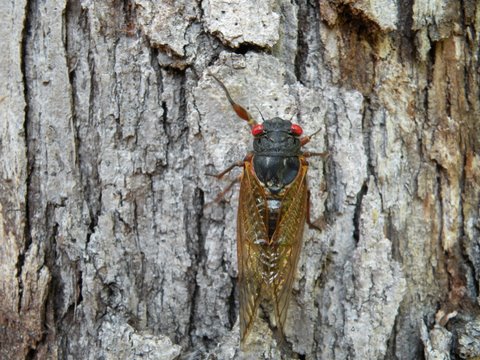
Q: Any ideas on when and where the Brood X cicadas will appear in 2021?
A: Only a couple of counties (Fannin, Gilmer, Union) in far north Georgia will see any notable appearance of Brood X cicadas. We will have the usual appearance of annual cicadas but they are a normal occurrence.
Cicadas belong to the species Magicicada. Periodical cicadas emerge in seventeen or thirteen year cycles. There are six groups of cicadas in North America. Each group is called a “brood” and each emerges in a different year.
Brood X (“ten” in Latin) is a big one. In Ohio, Illinois and Kentucky, millions will emerge at the same time and their noise will be incredible! In 2024, billions of 13-year cicadas will emerge in Georgia. These are members of “The Great Southern Brood,” the only 13-year cicada that occurs in Georgia.
But the good news is that cicadas do little damage. They sip tiny amounts of tree root sap during their 17 years underground. The female insects insert their eggs in the bark of new twigs, which causes them to die, but this “flagging” is rarely a bother to the tree.
On the other hand, if you have a newly planted tree, you want to prevent damage when it’s young. This is easy to do. Drape the tree with cheesecloth or insect netting having a mess opening less than 1/2″.
Note: There are other species of cicadas besides those that take seventeen years to develop. “Dog-day cicadas”, which some folks call “July flies” take from two to five years to complete their metamorphosis. The different broods of these annual cicadas overlap, so the noisy adults are present every year. The nymphs develop in the soil and emerge in mid-summer. You hear much of their racket in the dog days of August. If you are curious enough to look, periodical cicadas usually have red eyes and annual cicadas have black eyes.
If you think you are seeing the true red-eyed periodical cicada where you live, you can help scientists map them by uploading a picture to Cicada Safari. The free app will provide details.
If you want more information, see:

periodical cicada
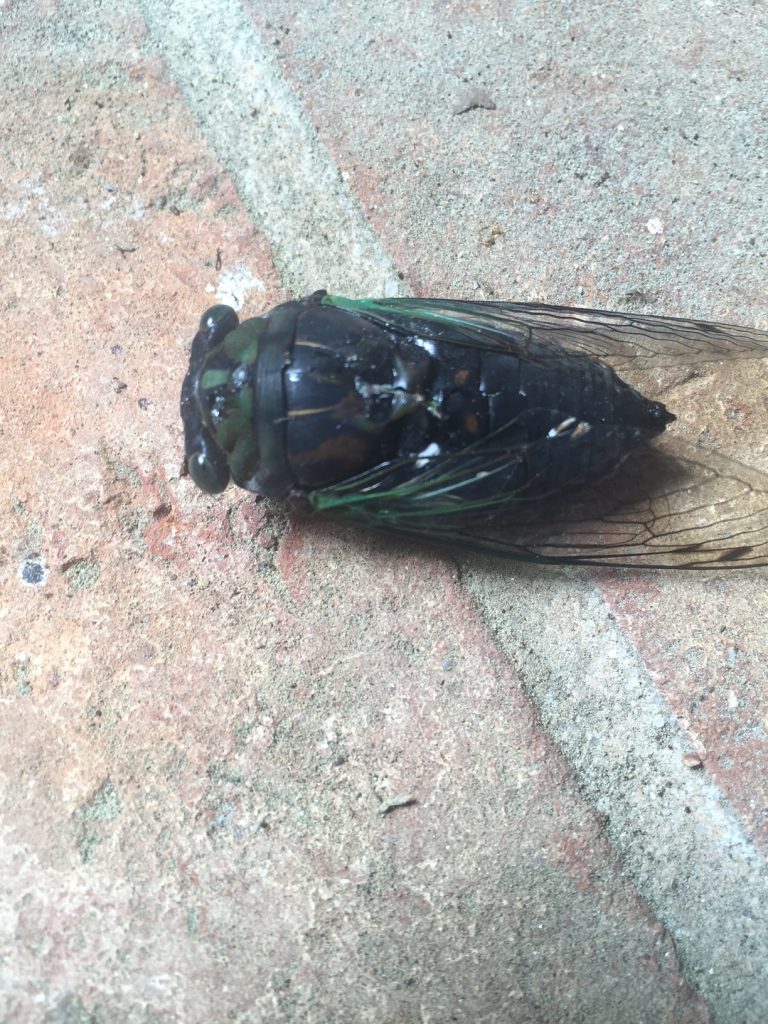
annual cicada
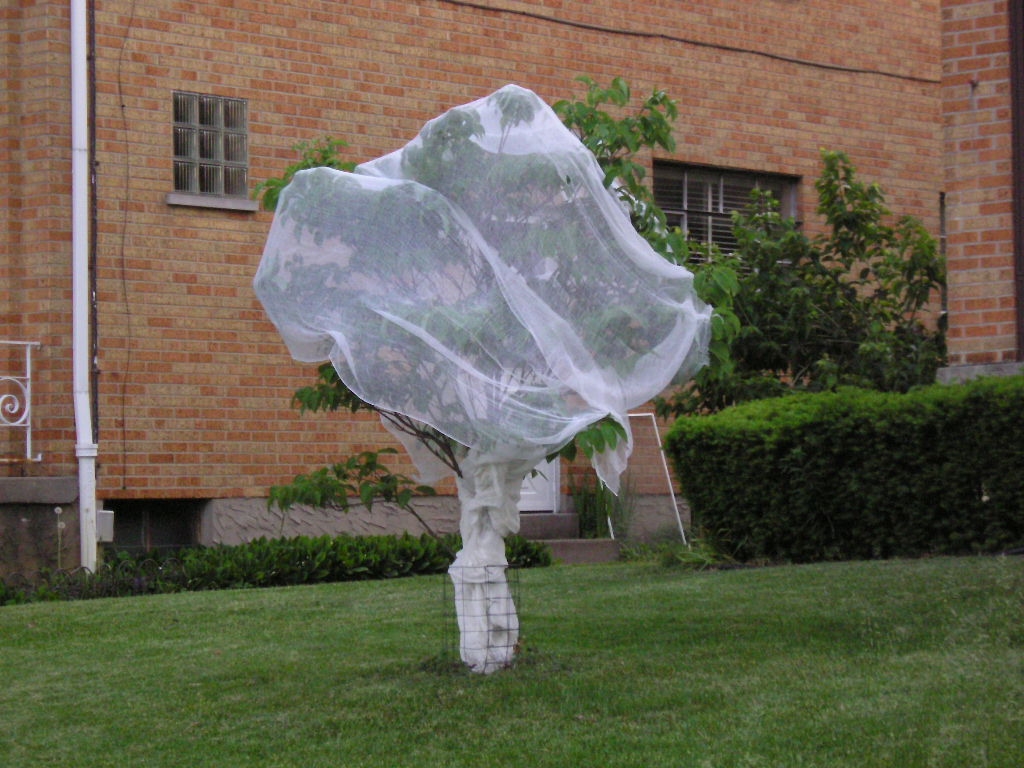
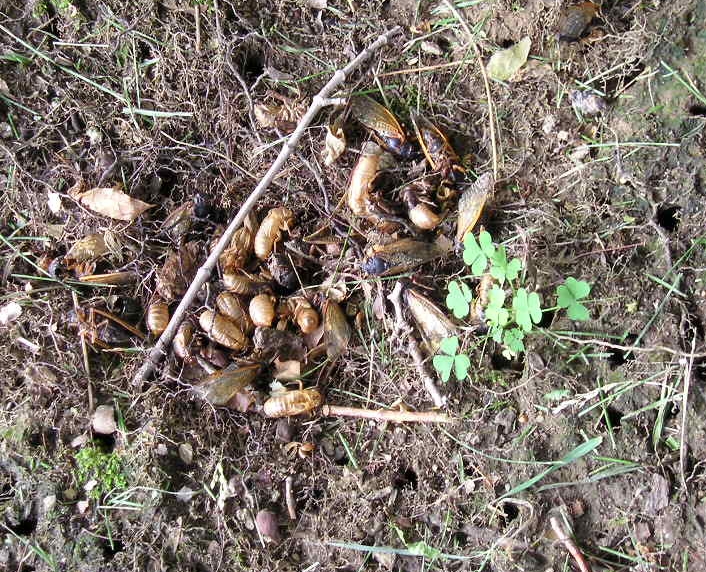
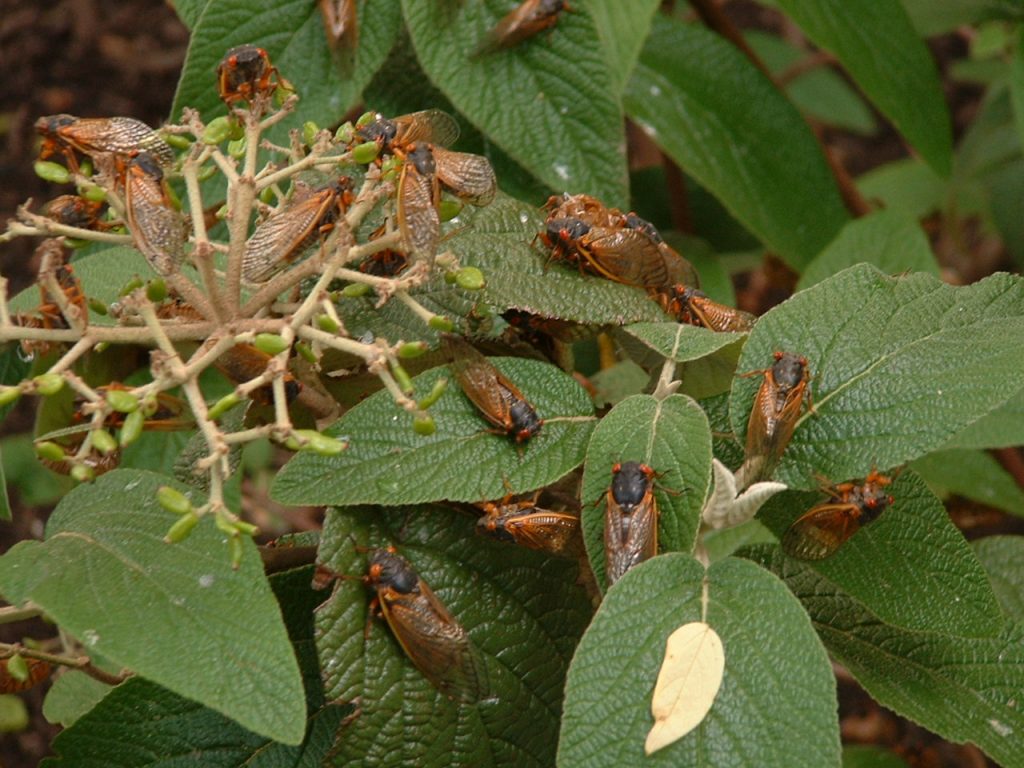
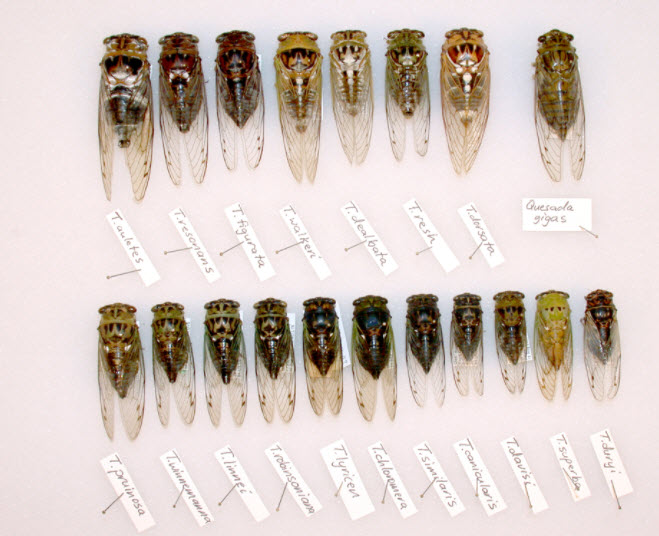
annual cicada species identified by Kathy Hill



